News from Europe: Erasmus Goes Virtual
The Erasmus program began in 1987 with the intention of increasing mobility opportunities for students residing within the European Community (now European Union). The program title is actually an acronym for ‘European Region Action Scheme for the Mobility of University Students’.
While student mobility remains a fundamental part of Erasmus, the program (renamed in 2014 as Erasmus+) has been greatly expanded to include support for an array of formal and non-formal learning, training and community-building activities which cross even into the area of sport. Erasmus+ is in fact conceived as a means to achieve the EU’s broader goals of ‘growth, jobs, social equity and inclusion’, as indicated in the panel to the right.
Additional attention has also been brought to bear on promoting ‘intercultural learning’ through virtual mobility – an initiative pursued through the host of programs encompassed in the newly-established Erasmus+ Virtual Exchange.
As stated on the program website, ‘Erasmus+ Virtual Exchange aims to expand the reach and scope of the Erasmus+ programme through Virtual Exchanges, which are technology-enabled people-to-people dialogues sustained over a period of time.’ The activities included under this head include Online Facilitated Dialogue, Advocacy Training, Interactive Online Courses, and Virtual Exchange Training. All are available for anyone aged 18-30 residing in Europe and what the European Neighborhood Policy defines as the Southern Mediterranean Region (Algeria, Egypt, Israel, Jordan, Lebanon, Libya, Morocco, Palestine, Syria and Tunisia). A summary of each component of the program can be found in the panel at left.
Erasmus+ provides in sum another indication of the considerable interest shown of late by administrators and faculty throughout the world in virtual mobility programs and their role in advancing the internationalization of higher education. Those interested in reading more about endeavors in this vein are encouraged to consult previous AHEA research reviews (add link to article here) on the subject.
The Erasmus program began in 1987 with the intention of increasing mobility opportunities for students residing within the European Community (now European Union). The program title is actually an acronym for ‘European Region Action Scheme for the Mobility of University Students’.
While student mobility remains a fundamental part of Erasmus, the program (renamed in 2014 as Erasmus+) has been greatly expanded to include support for an array of formal and non-formal learning, training and community-building activities which cross even into the area of sport. Erasmus+ is in fact conceived as a means to achieve the EU’s broader goals of ‘growth, jobs, social equity and inclusion’, as indicated in the panel to the right.
Additional attention has also been brought to bear on promoting ‘intercultural learning’ through virtual mobility – an initiative pursued through the host of programs encompassed in the newly-established Erasmus+ Virtual Exchange.
As stated on the program website, ‘Erasmus+ Virtual Exchange aims to expand the reach and scope of the Erasmus+ programme through Virtual Exchanges, which are technology-enabled people-to-people dialogues sustained over a period of time.’ The activities included under this head include Online Facilitated Dialogue, Advocacy Training, Interactive Online Courses, and Virtual Exchange Training. All are available for anyone aged 18-30 residing in Europe and what the European Neighborhood Policy defines as the Southern Mediterranean Region (Algeria, Egypt, Israel, Jordan, Lebanon, Libya, Morocco, Palestine, Syria and Tunisia). A summary of each component of the program can be found in the panel at left.
Erasmus+ provides in sum another indication of the considerable interest shown of late by administrators and faculty throughout the world in virtual mobility programs and their role in advancing the internationalization of higher education. Those interested in reading more about endeavors in this vein are encouraged to consult previous AHEA research reviews (add link to article here) on the subject.
